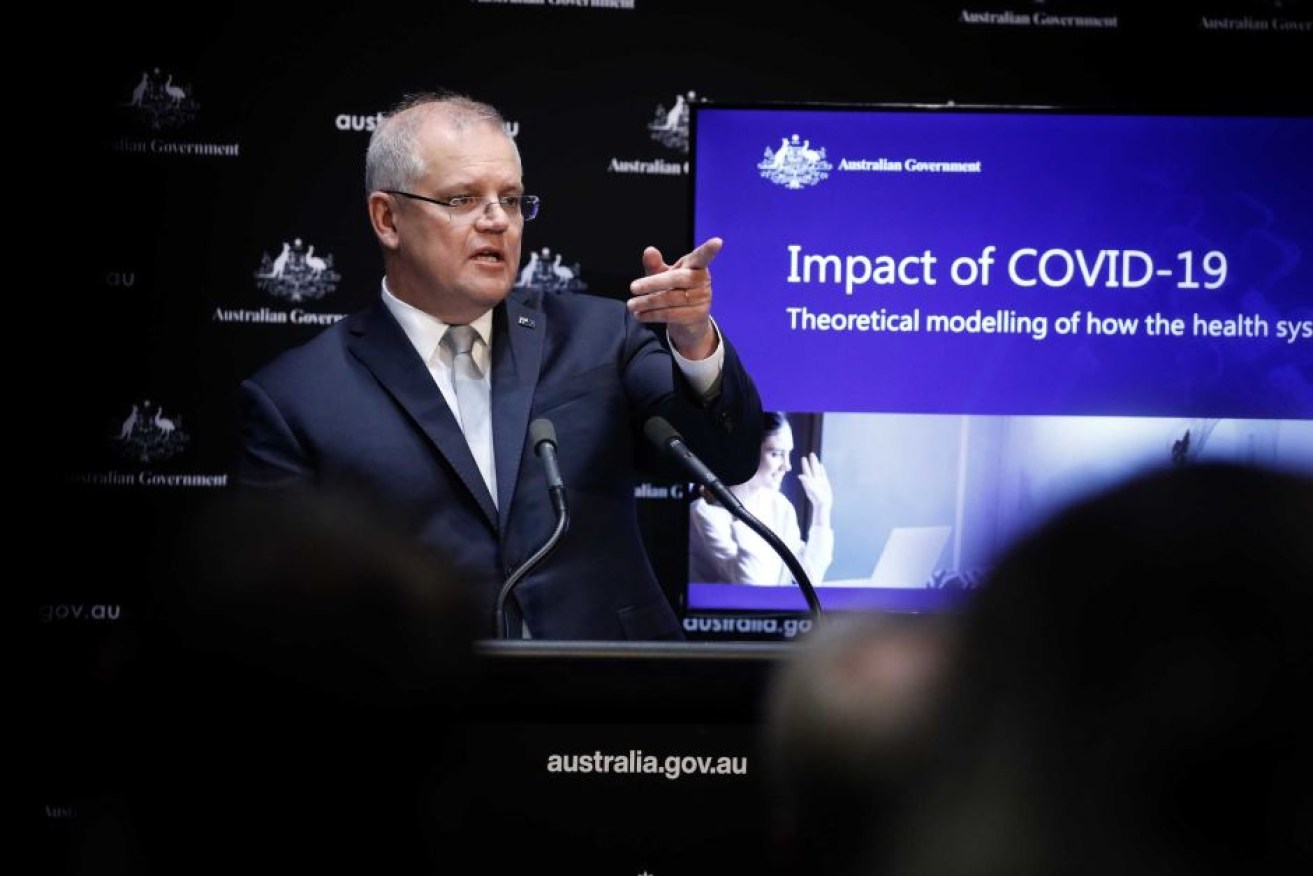Lockdown could end in months if Australians are willing to have their movements monitored


The government will need 40 per cent of the population to sign up for the app for it to be effective. Photo: ABC News/Matt Roberts
The battle against coronavirus is going high-tech, with Australians to be asked to download a phone app that will monitor their movements – but only with their express permission.
The federal government believes restrictions on the community could be eased in the months ahead if there’s more testing, greater surveillance of those infected by the coronavirus and much faster tracing of those they’ve had contact with.
It is developing a mobile phone app with the private sector to help monitor Australians’ daily interactions.
The app, which would be opt-in only and not mandatory, is likely to be ready in a fortnight.
The government believes at least 40 per cent of Australians will need to voluntarily sign up for it to be effective.
On Wednesday, Prime Minister Scott Morrison insisted the government would carefully work through privacy issues before the app was launched.
The app, called TraceTogether, plots who has spent 15 minutes or more near someone who proves to be COVID-19 positive. The records are shared with authorities if people are asked to be part of a tracing investigation.
Mr Morrison said location information might be necessary to save lives and livelihoods.
“If that tool is going to help them do that, then this may be one of the sacrifices we have to make,” he told 6PR radio on Wednesday.
He said the app would be a more efficient way of contact tracing coronavirus cases.
“What would happen then is the health authorities, who are the only ones who’d have access to that data, would contact those people just like they do now,” he said.
He said the digital information would prevent a reliance on people’s memories.
“At the end of the day [that] would mean we’d save lives and save more livelihoods,” Mr Morrison said.
The challenge facing the government will be encouraging enough Australians to sign up.
In Singapore, which is considered a more compliant society, only 20 per cent of its citizens have agreed to share mobile phone data for a similar app.
Mr Morrison discussed technological tactics in the fight against COVID-19 with Singaporean Prime Minister Lee Hsien Loong three weeks ago.
“We need a greater degree of tracing capability for contacts, and that can happen much more quickly than it does now,” Mr Morrison said.

Brendan Murphy accepts the community will need to be convinced about the app’s value. Photo: ABC
Chief medical officer Brendan Murphy also indicated the app was in the advanced stages of development.
“We’re very keen to use it, and use it perhaps even more extensively than Singapore,” Dr Murphy said.
“Obviously there’s a conversation to be had with the community on the acceptability of it.
“But we think that the idea of the app is a really excellent one if you’ve programmed it properly, and got the right community buy-in, so we’re actively looking at that.”
Attorney-General Christian Porter is examining the privacy implications of the app.
But Digital Rights Watch chair Lizzie O’Shea said people should be concerned about a location-tracking app with no guarantees about how data would be used.
“No public trust means people will hesitate to install the app, and not-very-subtly coercing people by saying restrictions could ease if surveillance increases is an appalling way to start,” she said.
Ms O’Shea said assurances that Mr Porter would look at privacy issues were not enough.
“Everything about this needs to be transparent. The code must be independently audited,” she said.
“There needs to be a clear benchmark for when data will no longer be collected and the app deactivated.”
Communications Minister Paul Fletcher said the app would proceed only if the government was satisfied with privacy safeguards.
“That’s a matter that the attorney-general is very focused on,” he said.
-with agencies








